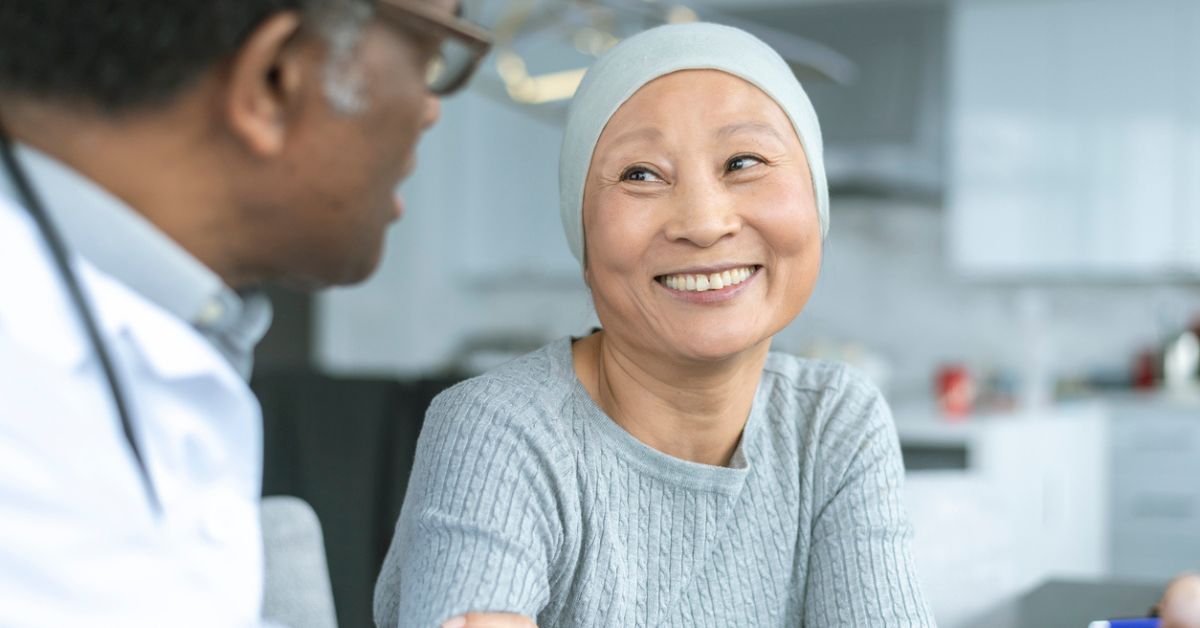
Diagnosed With Cancer? Keep These 5 Facts In Mind
-
When it comes to cancer, misconceptions are common
Finding out that you or a loved one has cancer can be overwhelming. It’s easy to imagine the worst, but the truth is that cancer treatments — and outcomes — have improved dramatically in recent decades. Knowing the facts may help you cope.
Here are five facts to know about cancer care today — and why things may be different than you expect.
1. Outcomes have improved for many cancers.
Cancer survival rates in the United States have been rising steadily since the 1990s. For many common cancers, including breast, thyroid, and prostate cancers, five-year survival rates are now 90% or better. And for all types of cancers combined, the five-year-survival rate is nearly 70%.
It’s important to remember that no two people with cancer are alike. An individual’s prognosis depends on many factors, including their specific diagnosis, cancer stage, available treatments, and health history.
Overall, though, a person diagnosed with cancer in the United States has a better chance than ever before that their disease can be cured or controlled long-term.
2. Incurable doesn’t have to mean untreatable.
Even when a person’s cancer can’t be cured, it may be possible to treat it. These days, many cancers, including cancers that have metastasized (spread throughout the body), can be treated as chronic health conditions. Treatment is aimed at allowing patients to live longer with the highest possible quality of life.
Some types of cancers are so slow-growing that they may not need to be treated right away. Many less aggressive blood cancers and low-risk prostate cancers can simply be monitored. If and when the cancer shows signs of advancing, you and your doctor can discuss treatment options.
3. Treatment isn't one-size-fits-all.
Many people think of chemotherapy when they think of cancer treatment. While chemo is one effective option, the fact is there are many advanced therapies available. Depending on your diagnosis, you and your doctor may discuss options such as:
- Localized therapies, which damage cancer cells using chemicals or cold or hot temperatures. These include surgery, radiation, and cryotherapy.
- Systemic therapies, which travel through the bloodstream to fight cancer cells. These include chemotherapy, hormonal therapy, immune therapy, and targeted therapy.
4. Side effects can be managed.
Cancer and its treatments can cause side effects. It's common to experience pain, fatigue, and emotional distress. But patients don't have to cope with these problems alone. Supportive care can help individuals feel more comfortable and navigate cancer's emotional challenges.
Supportive care is available for patients during any stage of their illness, including while they're going through active treatment. And it can make a big difference: Those who receive treatment and support for side effects while undergoing treatment often have milder symptoms and a better quality of life. They're more satisfied with their treatment experience too.
Take charge of your cancer care
Where you seek care makes a difference. Major cancer centers like Fox Chase are leaders in developing and using cutting-edge cancer treatments. Fox Chase patients have access to clinical trials and other care not available elsewhere. And we offer supportive care throughout your journey, including specialists in coping with the side effects of cancer treatments and a survivorship program to help you stay well once your treatment is complete. To learn more or schedule an appointment, call 888-369-2427 or request an appointment online.
